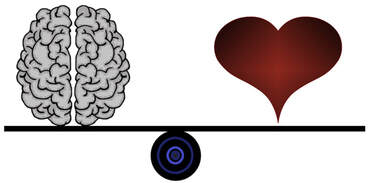|
by Rose Rohloff
"The use of cardiovascular medications can have a variety of neuropsychiatric consequences." Therefore, the following highlights are good review for anyone prescribed a CV drug, especially for the elderly, those with other conditions such as liver or kidney insufficiency, and/or also being prescribed psychiatric medications. Neuropsychiatric Consequences of Cardiovascular Medicationsby Dr. Jeff C. HuffmanAssociate Professor of Psychiatry at Harvard Medical School and the Director of the Cardiac Psychiatry Research Program in the Massachusetts General Hospital (MGH) Division of Psychiatry and Medicine. Angiotensin-converting enzyme inhibitors"Bottom line: ACE inhibitors and angiotensin II receptor antagonists are associated with low rates of neuropsychiatrie side effects, though mood symptoms, psychosis, and delirium have been reported." From snake venom to ACE inhibitor - the discovery of captopril- early 1980s, hypertension conferences were routinely enlivened by the poisonous Brazilian viper, Bothrops jararaca ... captopril — the first of the angiotensin-converting enzyme inhibitors, whose effects on blood pressure mechanisms mimicked those of the snake’s venom. https://pharmaceutical-journal.com/article/news/from-snake-venom-to-ace-inhibitor-the-discovery-and-rise-of-captopril Beta-adrenergic blocking agents or Beta (β)-Blockers"Bottom line: β-Blockers as a class are not clearly associated with depression; there is the most evidence for a propranolol-depression link, but even this relationship is equivocal. In contrast, β-blockers are associated with increased rates of fatigue." Calcium channel blockers (CCBs)"Bottom line: CCBs may be associated with fatigue in some patients, but otherwise cause few neuropsychiatrie symptoms." Diuretics"Bottom line: Diuretics most often cause neuropsychiatrie symptoms indirectly, through electrolyte abnormalities (thiazides) or vitamin deficiencies (loop diuretics). Acetazolamide is associated with fatigue and with delirium in renal failure." Doctors should always monitor electrolyte levels (sodium/Na and potassium/K+) of their patients taking diuretics. Centrally acting agents - Antiadrenergic agent"Bottom line: Clonidine is consistently associated with fatigue and sedation; delirium is infrequently associated with its use. (Clonidine) is also commonly used to reduce symptoms of opiate withdrawal. Bottom line: Methyldopa is clearly associated with fatigue and sedation. In contrast to early studies linking methyldopa with depression, later reviews and studies have found this association to be relatively weak. Other neuropsychiatrie symptoms are uncommon. Bottom line: Reserpine is associated with both sedation and daytime fatigue. Incidence of depression may be elevated among patients taking reserpine. However, other (generally more recent) reports question this association." α-Adrenergic agents"Bottom line: Fatigue is the most common neuropsychiatrie side effect associated with -adrenergic antagonists; other neuropsychiatrie side effects are infrequent." Vasodialtors"Bottom line: Vasodilators are generally associated with low rates of neuropsychiatrie consequences. Hydralazine is a leading cause of drug-induced lupus, but this syndrome affects the central nervous system much less commonly than the idiopathic form of the disorder." Antiarrhythmic medications"Bottom line: Most Class I Antiarrthymic agents have been associated with psychosis and delirium in case reports. The syndrome of cinchonism associated with quinidine may include sensory changes along with delirium, and procainamide is a cause of drug-induced lupus. Bottom line: Class III Amiodarone is associated with thyroid abnormalities in 15% of patients, and untreated thyroid dysregulation can lead to a variety of mood, cognitive, and psychotic symptoms. In contrast, direct neuropsychiatrie effects of amiodarone are uncommon. Bottom line: Digoxin is associated with delirium and other cognitive effects, especially in toxicity. Visual changes and hallucinations may also occur with digoxin use, even at normal serum levels." Conclusion by Author"... numerous cardiovascular medications can have neuropsychiatrie side effects, ranging from mood symptoms to cognitive effects to psychosis, and though a given agent may not consistently cause neuropsychiatrie symptoms in the general population, idiosyncratic reactions are possible." More specific studies are needed for, "clinicians ... to make fully-informed prescribing decisions for their patients." Patients and their families know the cognitive baseline of individuals being prescribed medications, and therefore, should always monitor for any neuropsych impact seen if CV drugs are used, on an individual basis for what is safe per person. Any and all side effects should be know, along with contradictions to other drugs, for all medication being taken. * Dr Huffman is a professor of psychiatry at Harvard Medical School and the director of the Cardiac Psychiatry Research Program in the Massachusetts General Hospital (MGH) Division of Psychiatry and Medicine. He also serves as the associate chief for clinical services in the Department of Psychiatry at MGH.
0 Comments
|
click an articleto read and post comments Search topicselect category
All
search by date
July 2024
|

